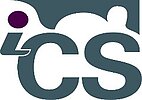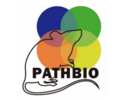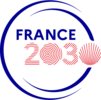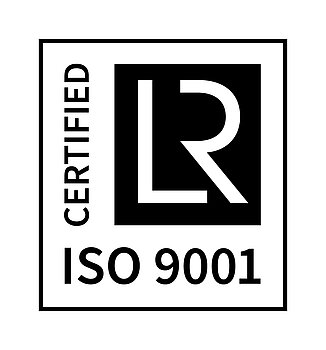![[Translate to English:] ©N. Torquet-PHENOMIN-ICS/CNRS](/fileadmin/_processed_/2/d/csm_banniere_ics_7e21619468.png)
Institut clinique de la souris
A major platform for research in genomics and translational medicine
Since its creation in 2002, the Institut clinique de la souris (ICS), as a platform of the IGBMC, provides a full range of specialized services in translational research and functional genomics to academic and industrial users, and is a major player in European and global post-genomic programs.
With the PHENOMIN project launched in 2011 (part of the call for projects entitled National Infrastructures in Biology and Health), the objective of the iCS was to create a national infrastructure specialized in the development, analysis and conservation of mouse models. Today, the iCS is one of the three founding centers of the French infrastructure PHENOMIN, dedicated to functional genomics in rodents, and is one of the main pilots of the national multi-species infrastructure CELPHEDIA. And its name became PHENOMIN- Institut Clinique de la Souris (PHENOMIN-iCS)
The activities of PHENOMIN-iCS focus on understanding the role of genetics in health and disease. These services help the scientific community to use the mouse to develop a complete functional annotation of the human genome and thus to better understand human diseases, their physiological and pathological mechanisms.
PHENOMIN-iCS combines the ability to generate large-scale genetically modified animal models with comprehensive phenotypic analysis. Its activities are adapted to the study of mutant mice and genetic reference populations, but can also be used for preclinical studies, for the validation of therapeutic targets, or pharmacological and toxicological studies in mice. The rat is also a rodent model available to users. The studies are carried out in compliance with the 3R rule (reduce, refine, replace), ethics and animal welfare.
Our missions
To provide a service platform combining the capacity of generating, on a large-scale basis, mutations in the mouse genome with high-throughput and comprehensive phenotypic analysis of the model.
- To facilitate the access to the engineering, the analysis and the distribution of mouse models for the scientific community.
- To have relevant in-house research and development programs to support the activities of ICS in the domains of mutagenesis, transgenesis, phenotyping, bioinformatics and data analysis.
- To promote the training both internally and for the users to guarantee the most efficient procedure being committed to comply with the Ethics and animal welfare.
- To be a reference center for functional genomics and preclinical research.
Quality policy
L'Institut clinique de la souris
PHENOMIN-ICS guarantees state-of-the-art scientific services that are constantly being improved. The institute and all its staff are committed to a quality approach in accordance with the ISO 9001 standard and the NF X 50-900 standard, a French reference for scientific, technical and managerial needs of the life science technology platforms. This double certification concerns our fee-for-service and research and development activities in the following areas: - Genetic engineering for the generation of mouse models - Custom management and experienced breeding of mouse lines -Comprehensive, high-throughput and integrative phenotypic analysis of mouse models. www.ics-mci.fr/en/about-ics/quality-policy/
More info about the quality policy of the ICS
PHENOMIN
PHENOMIN has been approved by Lloyd's register Quality Assurance to the following Quality Management System Standards NF EN ISO 9001:2015. The certification guarantees the requirements of international standard of the quality management system for the "Strategic management, coordination and animation of PHENOMIN: The National Infrastructure in Biology and Health for mouse phenogenomics". PHENOMIN is the 1st French research infrastructure to have been certified on its governance under ISO 9001: 2015 norm. The certification has been successfully renewed in 2020.
Collaborations and networks
The PHENOMIN-ICS plays a central role in large-scale infrastructures, both on a national level with the French Infrastructure CELPHEDIA and on a European level through the European Infrastructure InfraFrontier.
Likewise, the PHENOMIN-ICS is a major player in various European funded programs oriented towards mouse genetics such as EUCOMM, EUMODIC, EMMA, GENCODYS, AgedBrainSYSBIO, CanPathPro, EarlyCause and PATHBIO. By joining the International Mouse Phenotyping Consortium, the ICS contributes to decipher mammalian gene functions in order to better understand human physiology and disease.
Current projects
PHENOMIN-ICS is an active member of the scientific academic and economic landscapes through its implication in National Infrastructures, LABEX, EQUIPEX and Demonstrators, IDEX, International Infrastructures, Universities, Education and Research programs, International and National funding and Private partners. PHENOMIN-ICS places its knowledge and expertise at the service of global Research programs.
National : http://www.ics-mci.fr/en/collaborations/french-partners-and-academic-networks/
Européen and International :
http://www.ics-mci.fr/en/collaborations/european-networks/
http://www.phenomin.fr/en-us/scientific-context/contexts/
http://www.phenomin.fr/en-us/scientific-context/research/research-programs/
Our services
Mouse and rat models
Genetic mutations: KO, cKO, KI, KO/KI, cKI, point mutations, humanization, targeted transgenesis, chromosome engineering (deletion, duplication, translocation...),
Generation of mice and rats genetically modified by CRISPR-Cas9,
Generation of genetically modified mice by homologous recombination in ES cells,
Generation of transgenic mice by pronuclear injection of plasmids or BACs,
Validation, preservation and distribution of models.
Genotyping: design and/or analysis stand alone.
Phenotypic analysis and disease investigation
Behavior and cognition: clinical observation and basic neurological reflexes, sensory motor abilities, circadian activity and biological rhythms, sensory perception, anxiety, depression and social interactions, schizophrenia, learning and memory, epilepsy, sensory systems (hearing and vision),
Cardiovascular system: blood pressure, electrocardiography, echocardiography, vascular exploration,
Respiratory system: spontaneous breathing and bronchoalveolar reactivity after challenge by plethysmography, collection and analysis of bronchoalveolar washings, models of asthma (ovalbumin, mites), inflammation (mites, LPS), fibrosis (bleomycin), emphysema (elastase) and pulmonary arterial hypertension (by hypoxia)
Metabolic exploration: energy metabolism, bone metabolism, carbohydrate homeostasis, intestinal function, renal function and urinalysis, models of atherosclerosis and DSS-induced intestinal inflammation,
Blood analysis: classical blood biochemistry (electrolysis and ions, enzymatic activities, metabolites), endocrine exploration (intestinal hormones, bone metabolism markers, hormone assays), hematology and coagulation factors, immunology (cytokines, immunoglobulins, flow cytometry)
Histopathology: necropsy and standardized pathological analysis, histological analysis of tissue samples (fixation, embedding, sectioning, H&E staining and specific staining panels), immunohistochemistry, study of cell proliferation and apoptosis (including a wound healing model),
Embryology (mice): determination of lethality stage, characterization of embryonic and perinatal anomalies, analysis of embryos by imaging (µCT, HREM, OPT...),
Oncology (mice): xenograft models, orthotopic models, implantation of tumor cells by localized injection under ultrasound guidance, by subcutaneous and intravenous route, monitoring of tumor growth,
Microbiome: analysis of bacterial composition by 16S metagenomics and analysis of the metadata generated (PCA, t-SNE, heatmap, LeFSE, etc.).
Resources and equipment
2 molecular biology laboratories (PCR machines, LightCycler, qPCR, dPCR...),
Cell culture laboratory,
Genotyping laboratory with Tecan and Hamilton robotic platforms,
Micro-injection and cryo-preservation laboratory,
Animal house for mouse breeding with a capacity of 15,680 cages,
Animal house for rat breeding with a capacity of 300 cages,
Animal house for mouse phenotyping with a capacity of 2,000 cages, including 7 technical platforms with the necessary equipment for the study of behavior, cognition, sensory systems, the cardiovascular, respiratory and metabolic systems, blood and urine analyses and anatomopathology,
Animal house for the phenotyping of rats with a capacity of 135 cages with the necessary equipment for behavioral studies (actimetry cages, Y maze, rotarod, open field, Morris pool) and cardiac exploration (ECG, ultrasound).
Once your account has been created, your request will be redirected to an expert in charge of generation or phenotyping with who you be able to define the objectives of your project as well as possible, study the technical feasibility, define the specifications, write an authorization request and draw up an estimate. In case you firmly submit, the project will be implemented after administrative, technical and ethical validation (i.e., phenotyping studies) and one of our project managers will be dedicated to answering your questions and keeping you informed of the progress.
Submit a project
You are invited to send your request to extranet web portal of the PHENOMIN infrastructure.








